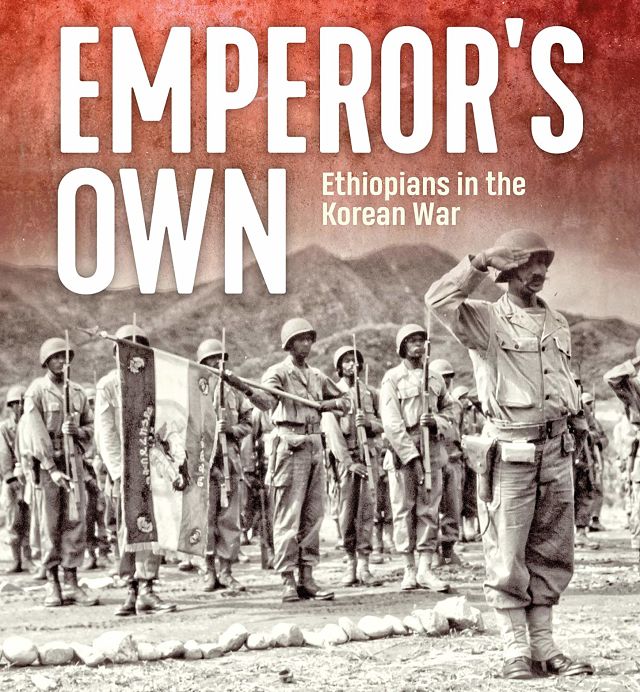 This quarto-sized volume, by Ethiopian-American Dagmawi Abebe recounts the story of the Ethiopian contribution to the war. (StrategyPage)
This quarto-sized volume, by Ethiopian-American Dagmawi Abebe recounts the story of the Ethiopian contribution to the war. (StrategyPage)
StrategyPage
StrategyPage reviews are published in cooperation with The New York Military Affairs Symposium
Ethiopia in the Korean War
Given that the Republic of Korea and the United States provided by far the largest number of troops to the U.N. command during the Korean War, most accounts of the conflict necessarily concentrate on their role in the fighting, although some American treatments slight the role of the ROKs. But nearly a score of other nations sent ground troops, aircraft, warships, and medical teams, and aside from the British and the Turks, their role in the war has generally been neglected in the literature and largely forgotten outside of their countries. One of those contingents was from Ethiopia. This quarto-sized volume, by Ethiopian-American Abebe recounts the story of the Ethiopian contribution to the war.
Abebe opens with some background on the recent military history of Ethiopia. He particularly concentrates on the Italian invasion and occupation (1935-1941), which signaled the failure of League of Nations “collective security”. This prompted the Ethiopian Imperial government to send troops, to help secure that principal which had been embedded in the United Nations charter.
Abebe outlines the experience of the Ethiopian contingent. It comprised four specially trained battalions, recruited from the Imperial Guard, which served with the U.S. 7th Infantry Division. Each battalion served about a year in Korea, and was then rotated home to be replaced by another. Altogether three battalions saw combat, and the fourth served during the initial year or so after the armistice of 1953.
Abebe spends some time discussing the recruiting, training, and equipping of the troops, and their service in the field. Despite some initial misgivings by American commanders, some of whom were could hardly conceal their racism, the Ethiopians did well in combat, even in winter (their homeland may be in Africa, but it’s also mostly highlands), and they were generally accepted as comrades by American troops. He concludes the book with some material on the subsequent military history of Ethiopia and biographical profiles of various soldiers and other persons prominent in the country’s Korean war experience
Emperor’s Own is a useful work for anyone interested in the Korean War or the role of smaller nations in collective defense.
—
Related:
Emperor’s Own: Ethiopians in the Korean War (Amazon)
Join the conversation on Twitter and Facebook.

























